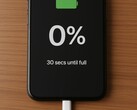According to a research team from Lingnan University Hongkong, sodium-ion batteries have been a cost-effective and sustainable alternative to lithium-based energy storage devices for years. Sodium is almost infinitely available on earth in the form of table salt and is significantly cheaper to extract than lithium. The batteries therefore promise lower prices and less dependence on critical raw materials. However, previous approaches suffered from short lifespans and high risks during fast charging processes.
Anode-free architecture is key
The research team utilized an anode-free design wherein no fixed anode is installed. Instead, the anode is formed during charging through the deposition of sodium ions on a collector. In previous experiments, this process often led to the formation of dendrites – fine metal structures that can cause short circuits. Fast charging, in particular, exacerbated this problem.
Stability through increased salt concentration
Scientists from Hong Kong and Beijing solved the problem by significantly increasing the concentration of sodium salts in the electrolyte. This ensures that sufficient ions are available in the immediate vicinity of the collector during charging, which promotes uniform deposition. As a result, the battery remains stable, even at high charging speeds. In tests, the cell achieved a fast-charging capacity of 10C and could be fully charged in six minutes. After 500 charging cycles, it still had more than 70% of its original capacity.
Potential for mobility and energy storage
"Sodium costs less than a tenth of lithium, is abundant in seawater, and can significantly reduce the price of electric vehicles and energy storage systems", explained project leader Prof. Li Liangliang. The researchers see their development as a step toward mass-market energy storage. Possible applications include electric vehicles, stationary storage systems for renewable energies and even portable consumer electronics.
Outlook
These are still lab results. The next step is to further develop the anode-free sodium battery beyond the prototype stage for industrial production. If this is successful, the technology could become a serious competitor to lithium-ion systems.























